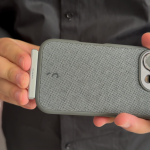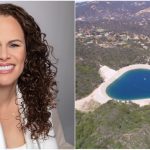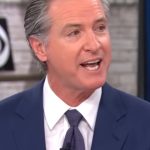Durst, 78, was given a life sentence this week with no possibility of parole after a jury found him guilty of killing his friend in 2000 at her Beverly Hills home, to keep her from talking to police about the disappearance of his wife two decades earlier.Durst’s attorney Dick DeGuerin told the Los Angeles Times his client was in “very bad condition” during the sentencing hearing.Durst has been hospitalised and put on a ventilator after contracting Covid, said DeGuerin.“He was having difficulty breathing and he was having difficulty communicating,” he said.“He looked worse than I’ve ever seen him and I was very worried about him.”Durst, a multi-millionaire who was the subject of an explosive HBO documentary entitled “The Jinx,” has always denied the charges against him.But he muttered to himself “Killed them all, of course” while the microphone remained switched on during a break in the recording of the final episode of the film.RUSSIA TOPS 1,000 DEATHS A DAYRussia on Saturday topped 1,000 deaths over 24 hours for the first time since the start of the coronavirus pandemic, with the country’s jab drive at a standstill and few restrictions in place.An official government tally showed 1,002 deaths and 33,208 new infections, setting a high for both fatalities and cases for the third day in a row.The surging outbreak has come with just 31 per cent of Russians fully inoculated as of Saturday, according to the Gogov website, which tallies Covid-19 data from the regions.A lack of tough restrictions has allowed the virus to spread unchecked, though a number of regions have reintroduced QR codes for access to public places.The Kremlin has avoided reintroducing major restrictions despite calling the country’s vaccination rate “unacceptably” low, saying this week authorities have to ensure “the economy continues working”.It also said that Russia’s medical system is prepared to take in the rising number of patients, describing it as not “overwhelmed”.Authorities have blamed Russians for the growing outbreak.Health Minister Mikhail Murashko this week pointed to their “behaviour”, while Kremlin spokesman Dmitry Peskov said everything had been done to give the public the chance to “save their lives by getting vaccinated”.While several Russian-developed jabs have been available for months, authorities have struggled to inoculate a vaccine-sceptic population.Independent polls show that more than half of Russians do not plan to get a shot.Russia’s fatalities from Covid now stand at 222,315 – the highest toll in Europe – even as authorities are accused of downplaying the severity of Russia’s outbreak.Under a broader definition of deaths linked to the virus, the Rosstat statistics agency has said that by the end of August more than 400,000 people in Russia had died with the coronavirus.PROTESTS AS ITALY TIGHTENS PRO-VAX WORKPLACE RULESThousands of people protested at Italian ports and across towns and cities Friday against the introduction of one of the world’s toughest Covid pass regimes, but fears of widespread disruption failed to materialise.More than 6,500 people demonstrated at the northeastern port of Trieste, according to local officials, although regional president Massimiliano Fedriga stressed “the port is working”.Delays were reported at the northwestern port of Genoa, where about 300 people blocked an entrance, while small protests were held across the country against the extension of the coronavirus pass to all workplaces.But the crowd numbers were limited and threats of blockades, economic chaos and even violence – after clashes between far-right activists and police in Rome last Saturday — failed to materialise.From Friday, all workers must show a so-called Green Pass offering proof of vaccination, recent recovery from Covid-19 or a negative test – or face being declared absent without pay.More than 85 per cent of Italians over the age of 12 have received at least one jab, thus qualifying for the pass, but up to three million workers are estimated to be unvaccinated.Some are against vaccines, some are afraid, while others – undocumented workers and foreigners notably – have reported difficulties accessing the nationwide vaccine program.They are now only able to work if they pay for their own tests either every 48 or 72 hours, depending on the type.“It’s absurd, unconstitutional,” said Andrea, a 46-year-old pharmacist protesting along with several hundred others at Rome’s Circus Maximus.“I’m on furlough and at the moment I don’t intend to get vaccinated for scientific, not political reasons,” he told AFP.There had been particular concerns about disruption in the freight industry, where a large minority of workers are unvaccinated.Ivano Russo, director general of trade group Confetra, told AFP that out of a total of 900,000 truck drivers, couriers and warehouse staff employed by members of his lobby, “25 to 30 per cent” do not have Covid certificates.Dock workers in Trieste have threatened to go on strike indefinitely, despite being offered free Covid tests, and the protest there was one of the largest, with banners saying “Citizens not puppets” and “No Green Pass, No Discrimination”.In Genoa, the blockade caused some delays.Italy’s welfare agency recorded an increase in sickness reports in public and private firms of 23 per cent on last Friday.Meanwhile a trade union leader in Naples complained that local council staff had to use their own phones to check employees’ green passes, with multiple glitches.Prime Minister Mario Draghi’s government says the pass will help prevent further lockdowns in Italy, one of the European countries hardest hit by the coronavirus pandemic.The eurozone’s third largest economy is expected to record almost six per cent growth this year after a devastating Covid-induced recession.Employees caught in the workplace without a Green Pass risks fines ranging from 600 to 1,500 euros (A$944 to A$1348).US TO OPEN BORDERS TO VAXXED TRAVELLERSThe United States will reopen its land and air borders on November 8 to foreign visitors fully vaccinated against Covid-19 – ending a more than 18-month ban on travel from much of the globe that separated families, hobbled tourism and strained diplomatic ties.The decision to ease restrictions was “guided by public health, stringent and consistent,” said White House assistant press secretary Kevin Munoz in a tweet announcing the new policy.He said the “announcement and date applies to both international air travel and land travel.” The new policy was quickly hailed by the European Union’s ambassador in the US, Stavros Lambrinidis, who called it “important and very welcome news” and said in a Twitter post that more details were expected to follow.In an effort to slow the spread of the coronavirus, US borders were closed after March 2020 to travellers from large parts of the world, including the European Union, Britain and China, India and Brazil. Overland visitors from Mexico and Canada were also banned.The months of restrictions affecting hundreds of millions of people helped fuel both personal and economic suffering brought on by the Covid-19 pandemic.US health authorities have said that all vaccines approved by the Food and Drug Administration and the World Health Organisation would be accepted for entry by air.At the moment, this includes the AstraZeneca, Johnson & Johnson, Moderna, Pfizer/BioNTech, Sinopharm and Sinovac vaccines.Despite the strict border closures, the United States has not yet mandated vaccines for domestic air travel.
Powered by WPeMatico





